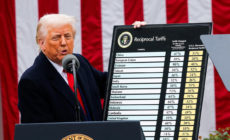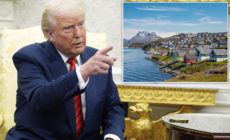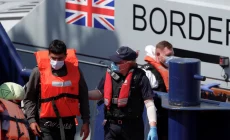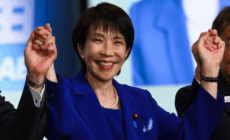Trump-Nato summit: EU’s Tusk warns president to appreciate allies
- Posted on
- Comment
President Donald Trump has left for a Nato summit in Brussels with a stark warning from European Council President Donald Tusk.
Ahead of his visit, Mr. Trump hit out at the EU on trade and at his Nato allies for failing to spend enough on defense.
Accusing the president of criticising Europe “almost daily”, Mr. Tusk said the EU spent more than Russia on defense and as much as China.
“Dear America, appreciate your allies, after all, you don’t have that many.”
Mr. Tusk also made the point that the US did not and would not have a better ally than the EU, reminding the president that it was European troops who had fought and died in Afghanistan after the 11 September 2001 attacks on the US.
While Mr. Trump is looking to improve relations with Russia, there has been alarm at the deteriorating climate with his allies in Europe and what he might agree to with President Putin.
Some have expressed fears for the future of Nato itself, and German Chancellor Angela Merkel has indicated that Europe may no longer be able to rely on its US ally.
Mr. Trump told reporters as he boarded Air Force One: “So I have Nato, I have the UK which is in somewhat turmoil, and I have Putin. Frankly, Putin may be the easiest of them all. Who would think?”
The EU Council leader said pointedly that when Mr. Trump did meet Mr. Putin on 16 July “it is always worth knowing who is your strategic friend and who is your strategic problem.”
Before he left Andrews Air Force Base, President Trump reiterated his demand for the US to pay less and other members of the Western military alliance to pay more, and he linked the issue to the EU’s trade surplus with the US.
Last month, the US raised fears of a trade war by slapping tariffs on steel and aluminum from the EU, Canada, Mexico and other US allies. The EU hit back with tariffs on products including motorcycles and orange juice. According to EU statistics, the EU’s trade surplus in 2017 was $140bn (€120bn; £106bn).
On Nato, President Trump’s main objection is that a number of member states have not increased their defense budgets to the target of 2% of economic output.
Nato countries have agreed to raise military spending by 2024, although Germany and Spain are unlikely to meet the target.
Source: BBC











 (Selorm) |
(Selorm) |  (Nana Kwesi)
(Nana Kwesi)